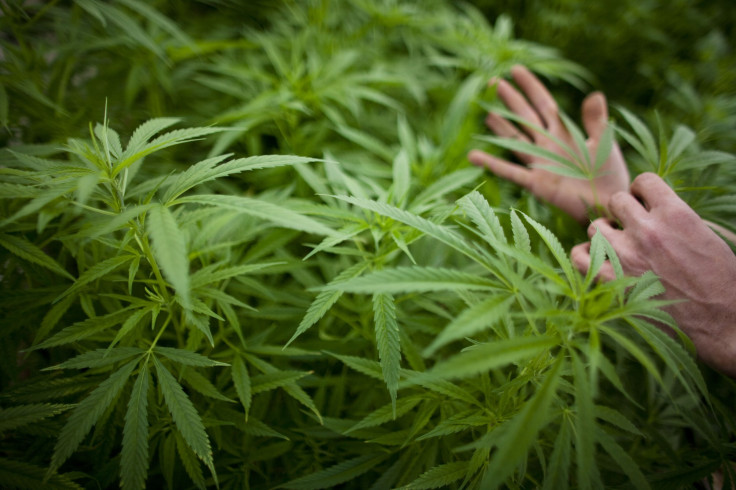Native American Tribes Can Grow Marijuana On Sovereign Lands: DoJ

Native American tribes will be permitted to grow and sell marijuana on sovereign tribal lands, even in states that prohibit the drug, according to a memo sent to U.S. attorneys by the Department of Justice Thursday.
Tribes wishing to engage in marijuana cultivation will still have to adhere to federal guidelines, which are in effect in the four states where the drug has been legalized for recreational use. The memo details a total of eight enforcement triggers that would spur federal intervention against any tribal marijuana trade.
These include requirements for tribes to have a "robust and effective regulatory systems in place" that would prohibit the sale of the drug to minors, and preventing the transportation of the drug to parts of the country where it is illegal, according to Bloomberg.
"The tribes have the sovereign right to set the code on their reservations," said Timothy Purdon, U.S. attorney for North Dakota and chairman of the Attorney General's Subcommittee on Native American Issues, according to the Los Angeles Times.
The decision presents tribes with both a significant economic opportunity, and a potential social problem. Alcoholism has had a devastating effect on many Native American communities. One quarter of the children of the Oglala Sioux Tribe suffer from fetal disorders related to their parents' alcoholism, for example.
As a result, some tribes are reluctant to enter the marijuana business, fearing the potential for negative social impacts. Purdon told the Los Angeles Times that a majority of tribes appear to oppose marijuana growing on their territory. Tribes that choose to cultivate marijuana, however, will not be subject to state and local taxes applied to the drug, which can run as high as 25 percent, in areas of the country where it is legal.
"If tribes can balance all the potential social issues, it could be a really huge opportunity," Seattle attorney Anthony Broadman, whose firm represents several Western tribes, told The Associated Press.
Kevin Sabet, a former presidential drug adviser, told US News & World Report of his concern that the new policy opens the door to pockets of legalization across the country. “A situation is quickly forming where people living in states who do not want legalization will in fact be living 10 minutes away from a marijuana store.”
Marijuana possession is illegal under federal law, but the drug has been decriminalized for medical purposes in 23 states, and has been approved by voters for recreational use in four: Washington, Colorado, Alaska and Oregon, as well as the District Of Colombia.
In 2012, nearly 3.6 million plants were removed from more than 5,000 illegal outdoor growing sites in the U.S. More than 43 percent of marijuana plants eradicated in 2012 were on public and tribal lands, according to the Office of National Drug Control Policy.
© Copyright IBTimes 2024. All rights reserved.












